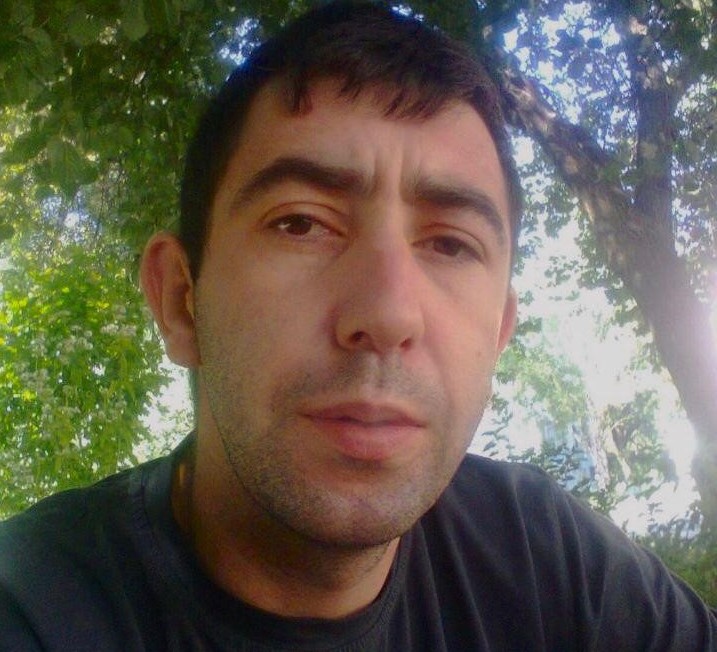Crimean Tatar sentenced to 6 years for involvement in legal Ukrainian organization

A Russian-controlled court in occupied Crimea has sentenced Medzhlit Ablyamitov to six years’ imprisonment for taking part, while in mainland Ukraine, in an entirely legal organization. Despite its name, the Noman Çelebicihan (or Asker) Battalion is not, an armed formation, and the only illegal thing is Russia’s use of such charges to sentence Crimean Tatars to long terms of imprisonment in harsh-regime Russian prison colonies.
27-year-old Ablyamitov had returned from mainland Ukraine to care for his gravely-ill mother. Asiye Ablyamitova died alone on 25 October 2020, two months after her son was seized by the FSB and remanded in custody.
In the report issued by the FSB after Ablyamitov’s arrest, the FSB stated, without naming him, that he was charged under Article 208 § 2 of Russia’s criminal code (taking part in the activities on Ukrainian territory of an armed formation, not envisaged by the legislation of that country and acting for purposes which are against the interests of the Russian Federation”.)
The Battalion undoubtedly riles the current Russian regime under President Vladimir Putin since its stated objective is an end to Russia’s illegal occupation of Crimea. The same demand has been repeatedly expressed by the UN General Assembly; OSCE; the EU and all democratic states, while, according to the International Criminal Court at the Hague, it is Russia’s occupation of Crimea that constitutes an international armed conflict.
The Noman Çelebicihan Battalion is not, in any case, an armed formation. It was created on 1 January 2016 from people who had taken part in the civic blockade of Crimea. It remains to this day a relatively small formation whose role at present is merely to back the Ukrainian border guards in areas near the administrative border with occupied Crimea. Its founder, Lenur Islyamov has long indicated that this is a Crimean formation, not only Crimean Tatar. While they would be willing to serve in the Armed Forces in the area of conflict in Donbas, the steps needed to formalize such service have yet to be taken. This does not, as Russian prosecutors and media claim, make it illegal.
The FSB claimed that Ablyamitov had been trained how to use firearms, and that his duties had involved guarding the Battalion, helping the Ukrainian Border Guard in joint patrolling of the buffer zone (around the administrative border between mainland Ukraine and Crimea) and checking individuals and vehicles at the checkpoints. It further asserted that, after returning to Crimea, Ablyamitov maintained contact with members of the Battalion and “did not report his voluntary cessation of participation in an illegal armed formation’. According to his lawyer, Ablyamitov gave his original testimony under enormous psychological pressure with officers having subjected him and his family to three armed searches and then interrogated him in the absence of a lawyer. He has not denied taking part in the Battalion, but did not carry or use arms, nor did have any training in how to use these.
The ‘trial’ took place at the Russian-controlled Kirov District Court under ‘judge’ Igor Degtarev The latter ignored Ablyamitov’s account of the FSB’s methods for forcing testimony from him. It also disregarded the critical evidence provided by Ukraine’s Security Service which confirmed that no criminal proceedings had ever been brought against any members of the Noman Çelebicihan Battalion and that the latter was not involved in unlawful activities. As Ablyamitov’s lawyer, Aider Azamatov pointed out, the investigators had relied purely on claims from the Russian ministry of a supposed threat to Russia’s security, without providing any backing for this. ‘Judge’ Degtarev was clearly also unperturbed when Aidin Mamutov, one of the prosecution witnesses, stated clearly in court that he had not been allowed to read ‘his testimony’ before being forced to sign it.
Degtarev did, however, issue a six-year sentence, with a further one year’s restriction of liberty, rather than the eight and a half years demanded by the prosecutor. An appeal will, of course, be lodged.
In both occupied Crimea and in Russia, there are a large number of former mercenaries and members of so-called ‘private military companies’. Such fighters have used arms and killed people in occupied Donbas, in Syria and other countries where their engagement closely follows Russian foreign policy.
Not one of these people has been accused of taking part in a genuinely illegal armed formation, It is thus clear that the charges against Ablyamitov and several other Crimean Tatars are politically motivated, depending not on whether the formation in question is illegal, but on whether it is fighting what the Kremlin sees as its geopolitical interests, or (legally) opposing them.
The prosecutions and ‘trials’ of men accused of involvement in the Battalion are frighteningly swift, with the men usually having state-appointed lawyers. The latter are generally there to sign papers and encourage the men arrested to not dispute the charges in the hope of getting a shorter sentence.
See, for example, the cases of Maxim Filatov ; Fevzi Sahandzhy ; Edem Kadyrov ; Dilyaver Gafarov ; Aidyn Mamutov and 55-year-old Nariman Mezhmedinov





